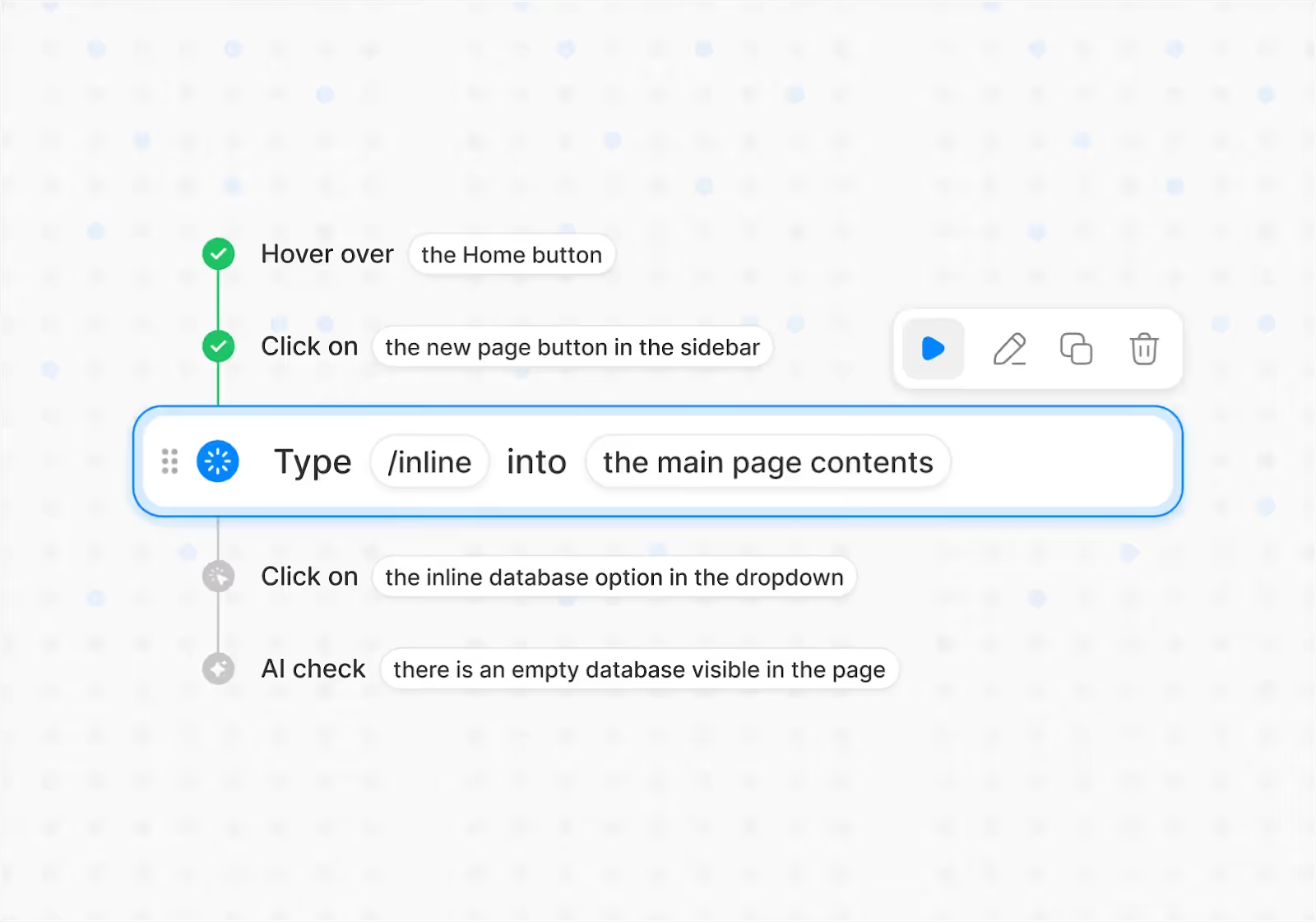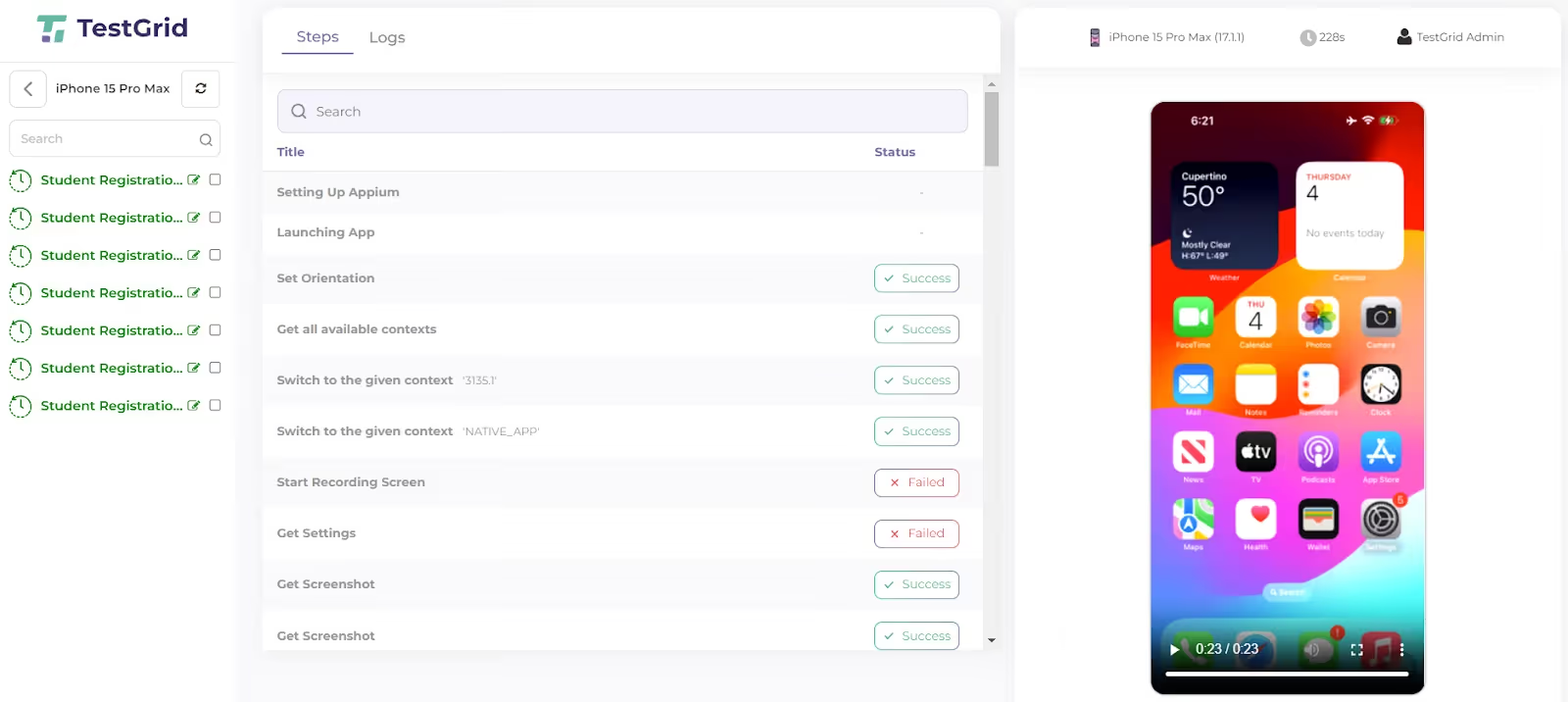5 Software Testing Tools Every Engineer Should Know
What are the best software testing tools you need to know about now? What about in five years time? Our picks for functionality, widespread usage, and more.


There’s a strong correlation between ‘the best software testing tools on the market’ and ‘the software testing tools you need to know’ – but these two categories are not one and the same.
Software testing is changing at an incredible pace. By 2030, it will likely be unrecognisable from its form even at the start of this decade, a mere five years ago. Equally, given legacy processes and software have a habit of hanging round in deep, forgotten corners of the enterprise, some knowledge of today’s established platforms is likely to be of use.
(If you’ve ever run into a mess of a legacy system and had to fish the organization’s one, semi-retired COBOL programmer from a cabin in rural Iowa to save the project, you’ll get where we’re coming from).
Equally, you need to look ahead – AI offers unbelievable efficiency gains for QA and software engineers that you can’t ignore. You can barely afford to ignore them now, and you definitely won’t be able to do so in five years’ time.
With this duality in mind, here are a few of our picks for software tools that should be on your radar.
The 5 Best Software Testing Tools to Know in 2025 and Beyond
Best Overall: Momentic

You’re busy. Increasingly, software and QA teams alike are being asked to do more with less. The best software testing tools will therefore need to offer fast, adaptable AI software testing that covers everything from quick regression tests to complex end-to-end testing.
Oh, and as well as minimizing the time your team spends writing and maintaining test scripts, they should also be intuitive to pick up, and be pretty much plug-and-play, integrations-wise. Too much to ask?
Not for Momentic.
Momentic’s key features
- Plain English test creation: describe what you want to test, and our AI handles the rest. Refocus those hours spent coding test scripts onto something more valuable
- Self healing tests: intent-based, natural language locators automatically update when the DOM changes. Say ‘goodbye’ to that test maintenance backlog
- An autonomous AI testing agent: your helpful AI coworker gets smarter the more you test – as it gets to know your app, it can suggest, generate, and maintain tests for key functions
- Lots of integrations out of box: minimize setup time with seamless integration with your CI/CD pipeline and key workplace tools
We’re also conscious that you don’t want to waste engineer hours in boring training seminars, so we’ve designed Momentic’s UI to be hyper intuitive. Your team may need to spend a few minutes clicking around, but after that, they’ll be good to go.
Perhaps that’s why Quora’s Product Operations team achieved a 14x speedup in text executions after implementing Momentic – with daily execution of test cases now taking just 20 minutes, rather than 7 hours.
2. For Visual Testing: TestGrid

Visual testing: a real time drain when done manually. Can you automate it? Yes, without too much difficulty – but depending on your app specifications, you’ll need to consider dynamic content, responsive design, cross-platform variations, and the challenges of integration with continuous deployment workflows.
Good news: you can now use AI to deal with these things for you, so you can fire off your automated testing suite with a minimum of effort. TestGrid is a good option for this, because it offers a host of useful features and analytics tools alongside its visual testing features.
TestGrid’s key features
Visual testing features are the standout here – these capture changes in the user interface and allow your team to fix UI glitches and other errors after code changes. When the AI runs regression tests, it automatically generates a visual testing comparison with baseline and subsequent tests.
Other highlights include:
- Real-time performance monitoring features that decrease response time
- ‘Turbo Mode’ for remote iOS control, for near-zero latency
- Automated AI test case generation from user stories or key requirements
TestGrid has an extensive, powerful set of features, perfect for larger enterprises with heavy continuous testing requirements. Smaller teams and startups might find the feature set (and the price point) a little overwhelming, however – if this is you, check out the freemium version or consider opting for something a little more nimble instead.
3. For LLMs: Deepcheeks
The AI boom shows no sign of slowing down – as of 2025, 67% of organizations worldwide have implemented some sort of LLM to support their operations, and the number of LLM-powered apps is estimated to currently be creeping towards 750 million.
This is a case of futureproofing. If you aren’t working on an LLM-powered app at the moment, chances are you will be at some point in future. Get ahead of the game by learning how to use the best software testing tools for LLMs now. There are a few options here, but we’ve chosen Deepcheeks as one of the most widely used.
Deepcheeks’ key features
Deepcheeks is a thorough, open-source testing tool that will suit businesses looking to monitor LLM patterns in the long term for fairness, bias, and robustness. Users benefit from:
- Bias detection/mitigation, to pinpoint biases in responses at scale, that human testers might miss
- Performance monitoring, to track LLM performance and allow you to jump onto any drift issues early
- Customizable benchmarks, to tailor evaluations to your organization’s important metrics
- Visual dashboards for at-a-glance insights into key metrics
4. For Free Mobile Testing: Appium
We don’t need to tell you that mobile app development is a huge, huge business in 2025. But just to put that into numbers – most consumers (55%) prefer mobile apps as their primary channel for interacting with brands. In 2024, this translated into 136 billion total mobile app downloads across the Google Play and Apple App stores.
With so much competition, your app needs to be smooth, intuitive, and bug free to stand a chance of standing out. Enter Appium – an open source mobile testing framework that makes running great mobile tests much easier for engineers.Everyone from Amazon and EY downwards, so it’s worth keeping your knowledge of it up-to-date.
Appium’s key features
Appium is one of the best software testing tools for mobile apps because:
- It’s compatible with iOS and Android and allows you to write tests with a standard API, so you can use your scripts across platforms without having to rewrite them
- You can use it to test native, hybrid, and mobile web applications
- It supports a range of languages, including Java, JS, Python, C#, and (handily for Android engineers) Kotlin
- It’s easy to integrate with other testing tools
AI functionality? Not built into the core platform, but it’s possible to achieve via test-ai-classifier (for element identification) and appium-llm-plugin (to allow natural language descriptions as selectors via OpenAI-compatible API).
If you want to save a fair amount of time and effort on plugin installation, check out our new, AI-native mobile testing features that sit within our overall tool – no integration required.
5. For an Established Developer Community: Selenium
Logging onto Selenium can feel like going back to your hometown for the holidays. Nice to be reminded of your high school haunts, but let’s face it – you’re in a better place now.
What Selenium lacks in native AI functionality, however, it makes up for in plenty of other areas. Here’s why you should be keeping up with Selenium knowledge in the face of more agile software testing tools entering the market.
Selenium’s key features
Selenium is a powerful tool that works across multiple browsers, multiple operating systems, multiple frameworks, and multiple languages. So, web testing-wise, it likely has you covered (though you will need to integrate other tools for mobile testing).
Three other key advantages:
- You won’t have any issues finding people who know how to use it
- There’s a huge Selenium community for troubleshooting purposes
- It’s open source, so can be used and customized for free, with no expensive licensing costs
This is going to make it hugely attractive to many, particularly if you’re running on a tight budget or you’re a small team that can’t afford to lose hours to troubleshooting key software.
Momentic: The Best Software Testing Tool for the AI Era?
We’d love to see if Momentic’s AI testing tools could help ‘black box’ your testing processes for more accurate, more widespread testing with a whole lot less effort.
If you’re keen to save over two thirds of the time you spend on key testing processes, why not schedule a conversation with our engineers?


